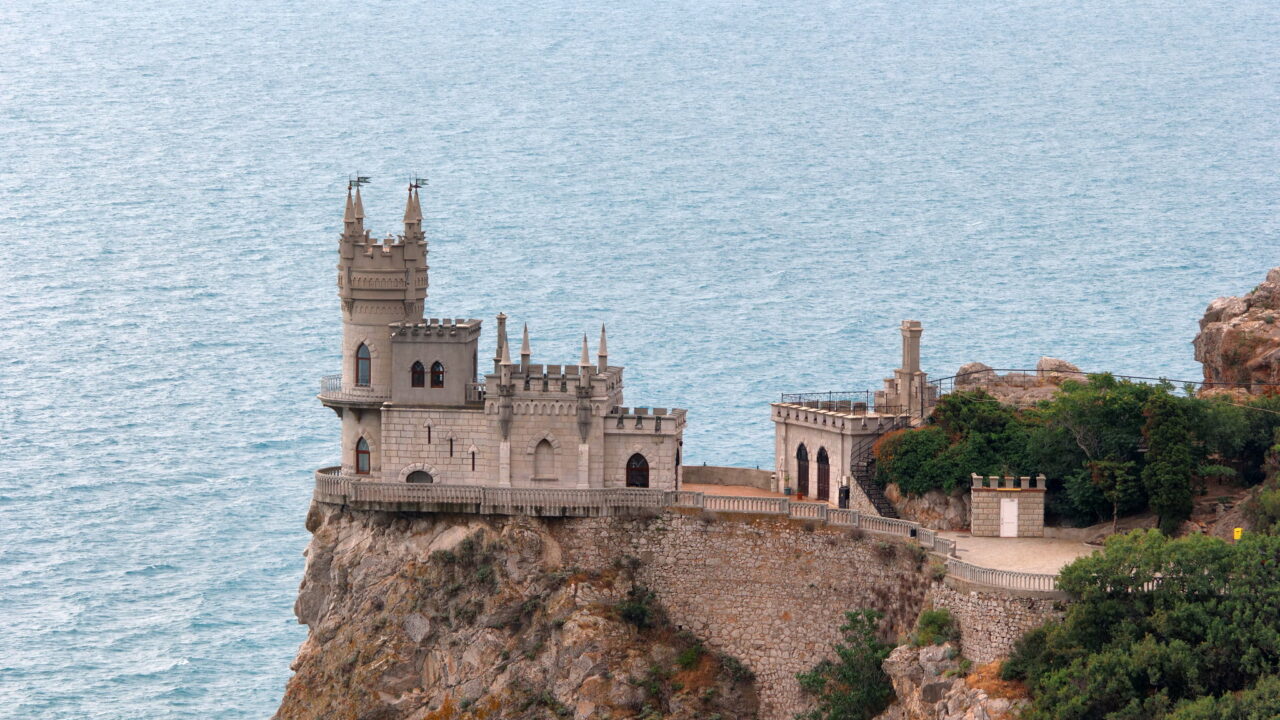Why the EU should appoint a special representative for Crimea
By appointing a special representative for Crimea, the EU would show its commitment to standing by its partners and rejecting Russia’s violations of international law
Hardly anyone mentions Crimea anymore. The territory is an awkward topic because no one truly knows what to do with it. In 2014 Russia annexed Crimea and launched a war in Donbas, in flagrant violation of international law. This led to a major stand-off with the West. Seven years on, it is crucial to remember the gravity of Crimea’s annexation and to support Ukraine in its quest to regain control of the territory.
The European Union maintains its non-recognition of Russia’s claims to Crimea and its sanctions on the country in response to the annexation. Companies based in the EU have occasionally sidestepped the sanctions, but the official policy still holds – and, overall, it works. However, Crimea is rarely on the EU’s agenda. Each year, the bloc’s high representative for foreign and security policy makes a near-identical statement on its position and calls on more states adopt non-recognition, in line with UN General Assembly Resolution 68/262.
It is important that the EU does not allow selective engagement with Russia on combating the pandemic to soften its principled stance on the country’s egregious actions in eastern Europe
Yet there is a risk that, over time, this policy will be watered down. International attention has turned away from Crimea and towards the war in Donbas. And, as the years pass, it will likely turn away from the conflict too. Following the pandemic, a growing number of Europeans may call for the EU to lift its sanctions on Russia and engage in more economic cooperation with the country. It is reassuring to see cooperation between Western and Russian vaccine developers, but it is important that the EU does not allow selective engagement with Russia on combating the pandemic to soften its principled stance on the country’s egregious actions in eastern Europe. To do otherwise would be to set a dangerous precedent.
While is unlikely that Crimea will come back to Ukraine anytime soon, the EU should become more vocal on the issue. The bloc’s current high representative, Josep Borrell, already has enough crises on his hands. However, the EU could make use of its flexible instruments to appoint a special representative for Crimea. Such representatives ‘promote the EU’s policies and interests in troubled regions’, and increase the bloc’s visibility in these areas. Since appointing in 1996 its first special representative – for the African Great Lakes region – the EU has gradually increased the number and geographical scope of these diplomats. Currently, there are nine special representatives, including one for the South Caucasus and the crisis in Georgia. Crimea and the war in Donbas are conspicuous in their absence from the list. Given that eastern Ukraine certainly fits the description of a troubled region, the EU should increase the visibility of its policies there.
A special representative for Crimea would be tasked with keeping the issue on the international agenda. They would guard the policy of non-recognition and explain why it is important, especially to countries that did not vote in favour of the UN resolution. They would work to solidify the EU’s policies of non-recognition and sanctions. And they would highlight human rights violations in Crimea, particularly those against the Crimean Tatars – who have faced repression since 2014. Shedding light on the continued militarisation of Crimea and the fragile security situation in the Black Sea would be another important task.
Ukraine is starting a new initiative, the ‘Crimean Platform’, with a view to putting Crimea back on the international agenda, coordinating international efforts on the territory, and eventually ending the occupation. The initiative has been long in the making and is off to a slow start. Ukraine has announced that it will hold summit of participants in the platform on 23 August 2021, and is now gathering international support for the initiative. Its success greatly depends on the EU’s support and participation. Ukraine has encouraged the bloc to create the position of special representative for Crimea – a proposal that it is studying.
The moment to appoint a special representative is now. Borrell’s trip to Moscow last week shows us that the EU needs a more principled and less naive policy on Russia. The high representative has vowed to ‘draw the consequences’ from Russia’s aggressive attitude. If he wants to strengthen the EU’s position vis-à-vis Russia, a more outspoken policy on Crimea is needed.
Russia needs to know that the EU is ready to confront it on flagrant abuses of international law and human rights. The country is once again experiencing mass protests, and mass arrests, following the detention of opposition leader Alexei Navalny. There have even been limited demonstrations in support of Navalny in Crimea, prompting a tough reaction from the authorities. As the EU ponders how to reshape its Russia policy in light of these events – and following Russia’s refusal to engage in a constructive dialogue in Moscow last week – the bloc should use all the diplomatic instruments at its disposal to show its commitment to standing by its partners and rejecting Russia’s actions. The appointment of an EU special representative for Crimea would play an important role in this effort.
The European Council on Foreign Relations does not take collective positions. ECFR publications only represent the views of their individual authors.



